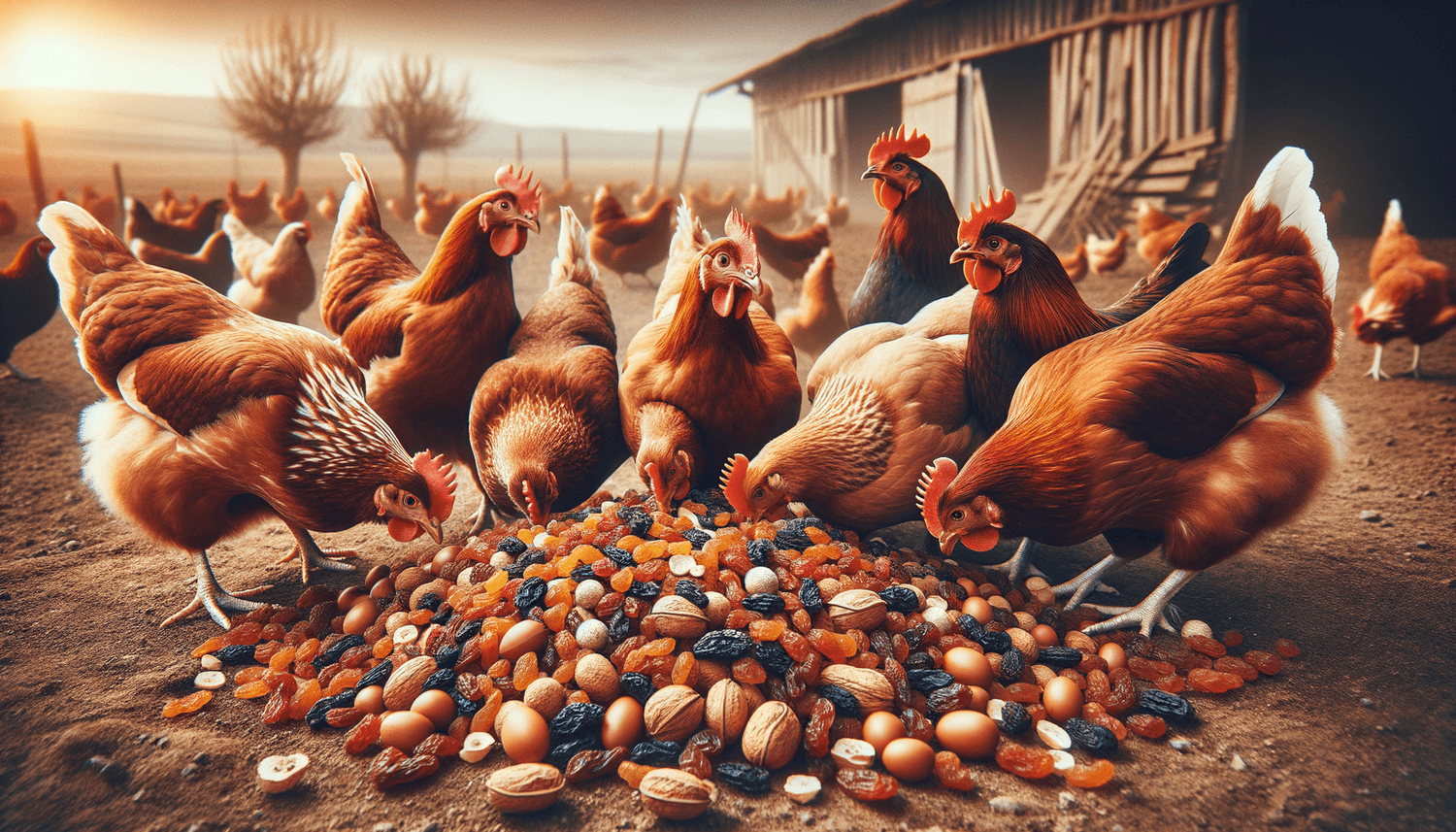“`html
Yes, chickens can eat nuts and raisins. These foods can provide a variety of nutrients beneficial for poultry, but they should be given in moderation due to their high-fat content in nuts and high sugar content in raisins.
Quick Summary
- Chickens can eat nuts and raisins.
- Nuts are a good source of protein and unsaturated fats, while raisins offer natural sugars and antioxidants.
- Feeding nuts and raisins should be done in moderation due to their high-fat and sugar content.
- Offer nuts unsalted and raisins in small amounts, as an occasional treat.
Overview of Nuts and Raisins
Nuts are a diverse group of seeds that provide a rich source of protein, healthy fats, essential fatty acids, vitamins, and minerals. Raisins, dried grapes, are packed with sugars, fiber, and several vitamins and minerals, particularly potassium and iron. The dehydration process concentrates both the nutrients and the sugar content.
Benefits and Risks of Nuts and Raisins for Chickens
Nuts can be a nutritious snack for chickens, offering the benefits of protein and essential fatty acids that are necessary for their overall health and feather production. Raisins can be a quick energy source due to their natural sugar content, also delivering antioxidants. However, the risks lie in the high-fat content of nuts which can lead to obesity, and the high sugar content of raisins which can lead to health issues if consumed in excess.
Feeding Guidelines
The feeding of nuts and raisins to chickens should be approached with care. Nuts should be unsalted, crushed or ground to facilitate digestion, and given in very small amounts. Raisins should be even more limited due to their sugary nature – only a few should be offered occasionally as a treat. Regular commercial feed should constitute the majority of their diet to ensure proper nutrition.
Alternatives
If concerned about the high fat and sugar content of nuts and raisins, healthier alternatives include various grains, vegetables like cucumbers and leafy greens, and fruits such as apples without seeds, which are more suited to a chicken’s dietary needs.
Expert Opinions
Poultry nutrition experts typically recommend that treats like nuts and raisins should not exceed 10% of a chicken’s total dietary intake. Their advice is to always prioritize well-balanced poultry feed developed for optimal health and only supplement with treats for dietary enrichment.
Frequently Asked Questions
After learning about nuts and raisins as potential treats for chickens, several questions often arise regarding their suitability and how they should be fed to your feathered friends.
How often can chickens eat nuts and raisins?
Chickens can have nuts and raisins as a treat occasionally, which typically means once or twice a week, in small quantities to prevent nutritional imbalances.
Are there any specific types of nuts that should be avoided?
While many nuts are safe in moderation, avoid giving chickens nuts that are salted or flavored, as well as those that are potentially toxic, like bitter almonds or macadamia nuts.
Can nuts and raisins replace a meal for my chickens?
No, nuts and raisins should not replace a meal. Chickens require a well-balanced diet, and nuts and raisins should only be given as a supplement to their regular feed.
“`

















